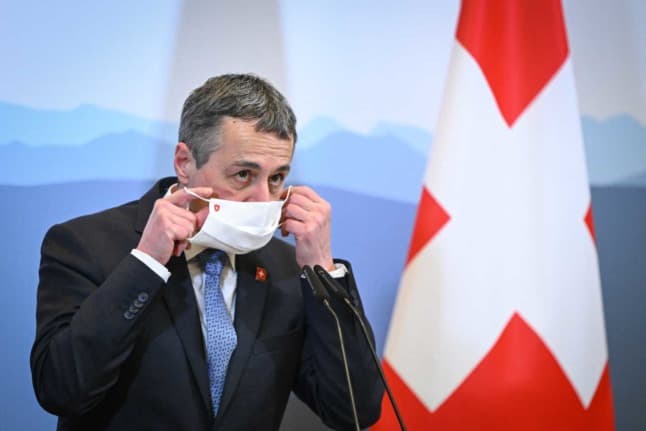Switzerland mulls ‘neutrality referendum’ amid Ukraine backlash

Neutrality is synonymous with Switzerland, but what does it actually mean?
Recent war-related moves such as imposition of sanctions on Russia, along with suggestions from some MPs to allow arms deliveries to Ukraine, raise up questions about Switzerland’s long-standing tradition of neutrality.
These events have prompted some Swiss MPs from all sides of the political spectrum to suggest a referendum, so the question of neutrality can be decided by the voters.
One deputy, Hans-Peter Portmann, told SonntagsZeitung that “while neutrality is anchored in the Constitution, the laws lack provisions on how Switzerland should behave as a neutral country”.
READ MORE: Sanctions on Russia: Is Switzerland still a neutral nation?
By holding a referendum on the matter, the population could have their say on what exactly it means to be neutral.
Criticism has grown since Switzerland’s decision to place sanctions on Russia, particularly from the centre-right and far-right of the political spectrum.
MP Roger Köppel, from the right-wing Swiss People’s Party (SVP), said at the time that the Swiss government had “buckled”, arguing that it “did not have the strength to uphold (the principle of) neutrality”.
When the announcement was made, Swiss President Ignazio Cassis acknowledged that while the step was “unique” Switzerland was not abandoning its “untouchable” commitment to neutrality, countering that “playing into the hands of an aggressor is not neutral.”
“This is a one-time step by Switzerland, which we should not take lightly from the point of view of neutrality.”
As reported by The Local in March, while Switzerland has historically retained a strong commitment to military neutrality, for instance by opting out of military arrangements such as NATO, there has been a consistent willingness to form political alliances, such as becoming a part of the United Nations.
Comments
See Also
Recent war-related moves such as imposition of sanctions on Russia, along with suggestions from some MPs to allow arms deliveries to Ukraine, raise up questions about Switzerland’s long-standing tradition of neutrality.
These events have prompted some Swiss MPs from all sides of the political spectrum to suggest a referendum, so the question of neutrality can be decided by the voters.
One deputy, Hans-Peter Portmann, told SonntagsZeitung that “while neutrality is anchored in the Constitution, the laws lack provisions on how Switzerland should behave as a neutral country”.
READ MORE: Sanctions on Russia: Is Switzerland still a neutral nation?
By holding a referendum on the matter, the population could have their say on what exactly it means to be neutral.
Criticism has grown since Switzerland’s decision to place sanctions on Russia, particularly from the centre-right and far-right of the political spectrum.
MP Roger Köppel, from the right-wing Swiss People’s Party (SVP), said at the time that the Swiss government had “buckled”, arguing that it “did not have the strength to uphold (the principle of) neutrality”.
When the announcement was made, Swiss President Ignazio Cassis acknowledged that while the step was “unique” Switzerland was not abandoning its “untouchable” commitment to neutrality, countering that “playing into the hands of an aggressor is not neutral.”
“This is a one-time step by Switzerland, which we should not take lightly from the point of view of neutrality.”
As reported by The Local in March, while Switzerland has historically retained a strong commitment to military neutrality, for instance by opting out of military arrangements such as NATO, there has been a consistent willingness to form political alliances, such as becoming a part of the United Nations.
Join the conversation in our comments section below. Share your own views and experience and if you have a question or suggestion for our journalists then email us at [email protected].
Please keep comments civil, constructive and on topic – and make sure to read our terms of use before getting involved.
Please log in here to leave a comment.